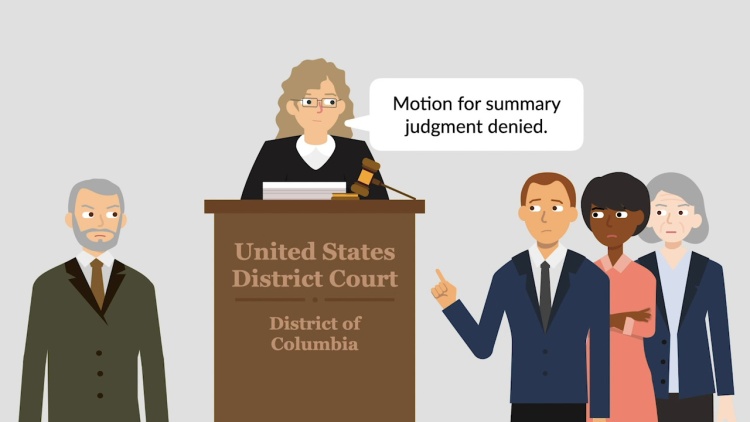Wannall v. Honeywell International, Inc.
United States District Court for the District of Columbia
292 F.R.D. 26 (2013)
- Written by Craig Conway, LLM
Facts
John Tyler and his wife (plaintiffs) filed suit in the District of Columbia Superior Court against Honeywell International, Inc. (defendant), the predecessor to Bendix Corporation (Bendix), a company that manufactured and sold vehicle brakes and component parts. Bendix brakes contained asbestos fibers, a carcinogenic substance directly linked to mesothelioma, a deadly form of cancer. Tyler alleged that his prolonged exposure to the asbestos-laden brakes while working as a brake repairman caused him to develop mesothelioma. Honeywell removed the action to federal district court. Subsequently, Tyler died. Stephen Wannall (plaintiff), the executor of Tyler’s estate, pursued the lawsuit in Tyler’s absence. Tyler had also previously worked with asbestos products during his years in the United States Navy and while working at Fort Belvoir in Virginia. Dr. Steven Markowitz, an expert for Wannall, opined that Tyler’s exposure to asbestos at all three places was sufficient to cause his mesothelioma. Honeywell moved for summary judgment. The district court denied the motion, claiming that Tyler’s exposure to the brakes was a substantial contributing factor in his development of mesothelioma. While the matter was pending, the Virginia Supreme Court decided Ford Motor Co. v. Boomer, 736 S.E.2d 724 (Va. 2013), and abrogated the substantial-contributing-factor test as an appropriate articulation of proximate cause. In response, Dr. Markowitz filed a declaration offering four additional opinions, one of which was that Tyler’s exposure to asbestos at each workplace was independently sufficient to cause his mesothelioma. Honeywell filed a motion to strike Dr. Markowitz’s declaration as untimely, and another motion for the court to reconsider its motion for summary judgment.
Rule of Law
Issue
Holding and Reasoning (Howell, J.)
What to do next…
Here's why 907,000 law students have relied on our case briefs:
- Written by law professors and practitioners, not other law students. 47,100 briefs, keyed to 996 casebooks. Top-notch customer support.
- The right amount of information, includes the facts, issues, rule of law, holding and reasoning, and any concurrences and dissents.
- Access in your classes, works on your mobile and tablet. Massive library of related video lessons and high quality multiple-choice questions.
- Easy to use, uniform format for every case brief. Written in plain English, not in legalese. Our briefs summarize and simplify; they don’t just repeat the court’s language.








